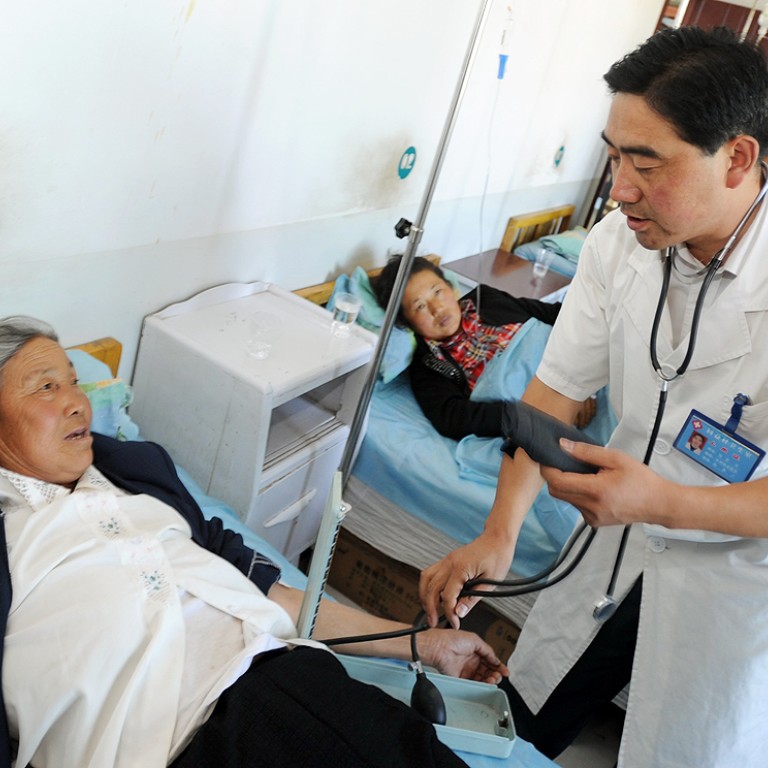
Foreign health funding can help to raise standards on mainland China
Social services tend to lag great urban migrations. The mainland's health system is a case in point. Subject to free-market reforms while remaining bound by tight regulation, it was struggling to cope long before urban dwellers became the majority of the population.
Social services tend to lag great urban migrations. The mainland's health system is a case in point. Subject to free-market reforms while remaining bound by tight regulation, it was struggling to cope long before urban dwellers became the majority of the population. It still does, despite huge central government outlays over the last five or six years to bring the cost of medical care within the means of the poor and even some of the middle class, and wider insurance coverage. A targeted increase in health spending as a proportion of GDP from about 5 to up to 7 per cent by 2020 is ambitious but still less than the world average.
A radical initiative is needed if health care is to catch up with rising expectations. Beijing has taken a step in the right direction with a pilot project to allow fully foreign-funded hospitals to set up in seven cities or provinces, including Guangdong, to improve services and introduce competition.
The State Council issued guidelines last year for investment in a wide range of health services. But the private sector still accounts for a very small proportion. Hong Kong doctors will attest to the regulatory barriers to opening practices. Insufficient funding leads to hospitals and doctors imposing surcharges on examinations and drugs, excessive medication and fee gouging. Patients expect a lot and blame doctors if treatment fails, often resulting in violence.
Because barriers to private services remain high and public hospitals are crowded, illegal operators have flourished. Their shortcomings, however, have given the private sector a bad name. Hopefully, properly credentialed, foreign-funded private hospitals will quickly wipe the slate clean with higher standards of professional care and quality services. There is no better example of why China still needs foreign investment.
An example of how bureaucracy has stifled private-sector investment in the mainland health care industry is to be found in the obstacles the University of Hong Kong has faced in establishing its pioneering HKU-Shenzhen hospital in Futian. It is running at a quarter of planned capacity for general and specialist services after the government ordered a halt to recruiting. HKU has been told to wait until the hospital is financially viable before recouping HK$200 million spent on clinical management and supervision. Thankfully, the university says it remains committed to the project through its core values of research and education, as well as supporting badly needed medical reform on the mainland.

